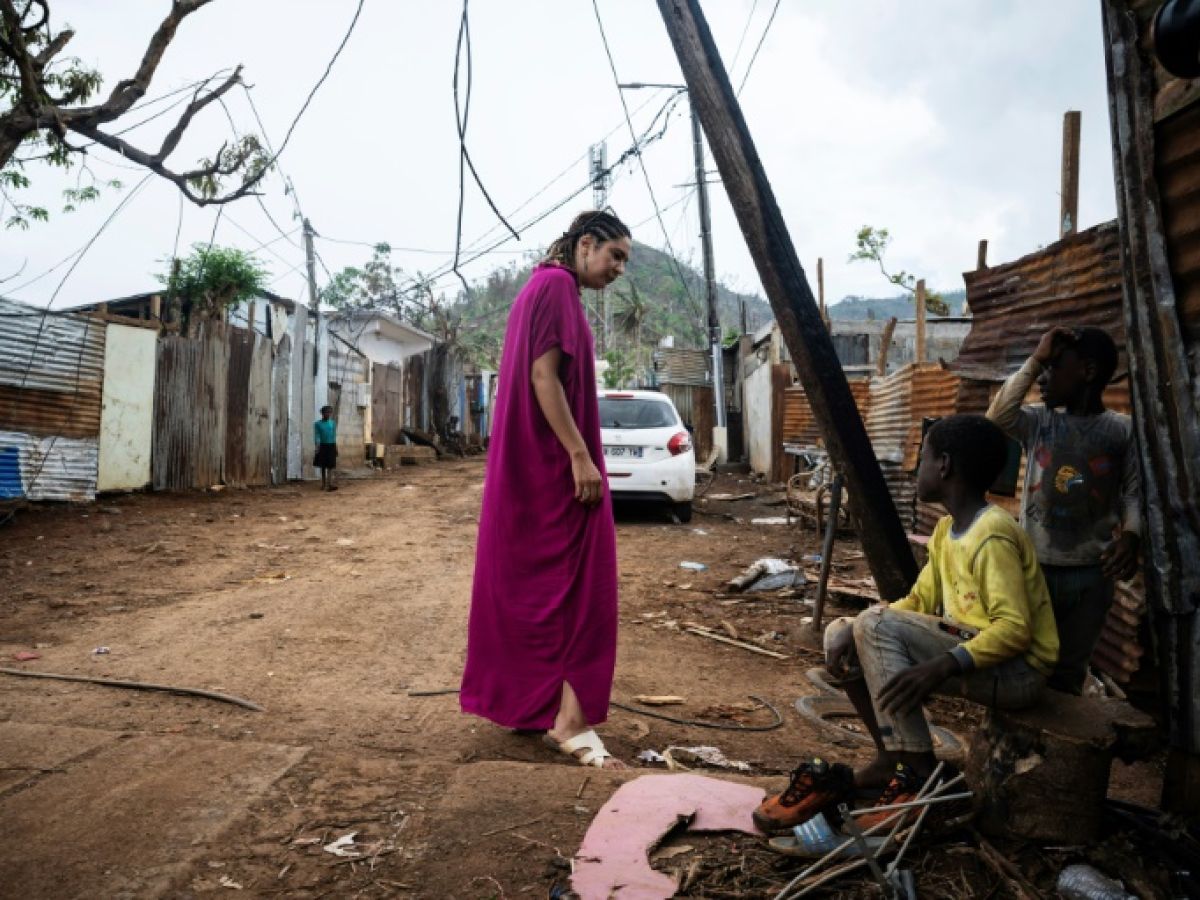"Are there any injured people? Are you mentally well?" Since the cyclone that devastated Mayotte on December 14, traveling maternal and child protection trucks have been crisscrossing the isolated areas of the archipelago where Chido has complicated access to care, making women and children more vulnerable.
Strolling through the informal neighbourhood of Cavani Sud (east of Mayotte), psychologist Mona Fandi calls out to a woman: "Hello! Do you have sick or injured children at home, pregnant women? Are you mentally well? That was quite a shock, Chido!"
Then, noticing some children playing in the ruins of a house: "You have pretty earrings," she said to the youngest, taking this pretext to place an attentive hand on her forehead and check her temperature.
A teenager approaches Mona Fandi. “We have a truck near the school with a midwife, a nurse, a translator and a psychologist. Come if you need it! And pass the message on,” she tells her.
The aim of this maternal and child protection truck "is to go and see the population and offer care" in the hard-to-reach areas of the island, and not just the shanty towns, Mona Fandi explained to AFP.
Meanwhile, inside the truck, a midwife changes a woman's contraceptive implant while a nurse talks to a mother whose children have chickenpox.
– Prevent the hospital from being “flooded” –
"We have quite a few stocks of medicines, Doliprane, rehydration salts, bars for malnourished children, physiological serum, all the contraceptives and pregnancy tests," says nurse Jeanne Savalle.
Residents come "for wounds (caused) by metal sheets or nails, fever, dehydration," explains the woman who also acts as a pediatric nurse.
Women, in particular, "for contraception, or for their pregnancy. The idea of the truck is to prevent the hospital from being flooded," adds her midwife colleague.
Saida, 10 years old, wearing a green sequined djellaba, timidly climbs into the vehicle and hands Binti Ahamada, a pediatric nurse, her foot damaged by barbed wire, an injury she sustained during the cyclone.
When asked how she is, the young girl takes the time to think, her big eyes scanning the space. "It's not going well," she concludes. At the "why?", her eyes mist over and she cracks.
"I'll take over," Mrs. Fandi then intervenes.
– Miscarriages –
"I have very tired mothers, overwhelmed by events, who are afraid of not being able to provide for their children. Many were selling fruits and vegetables on the side of the road and (with the destruction of fruit trees, editor's note) no longer have any money," says Mona Fandi.
The psychologist also sees "mothers who lost their babies during Chido" due to stress in particular, like one of them who had a miscarriage at seven months of pregnancy.
Mona Fandi works for the Department, at Child Welfare Services (ASE), which is responsible for 2,500 children, 1,200 of whom are placed in homes or foster families, she says.
Today, "we don't have a real visual of what's happening," the psychologist laments. Because immediately after the cyclone, professionals were unable to access certain areas to see the children, as the police did not consider them a priority enough to allow them to pass through security cordons, she assures.
She also points out that "reports and worrying information" concerning minors were not "able to reach the public prosecutor's office" or child protection, in particular rapes committed against children during the cyclone "which we were not able to deal with immediately since we no longer had access to the network".
Sheltering minors is also complicated, since there is a lack of shelter and "many" children were abandoned by their parents after Chido, "for economic reasons."
